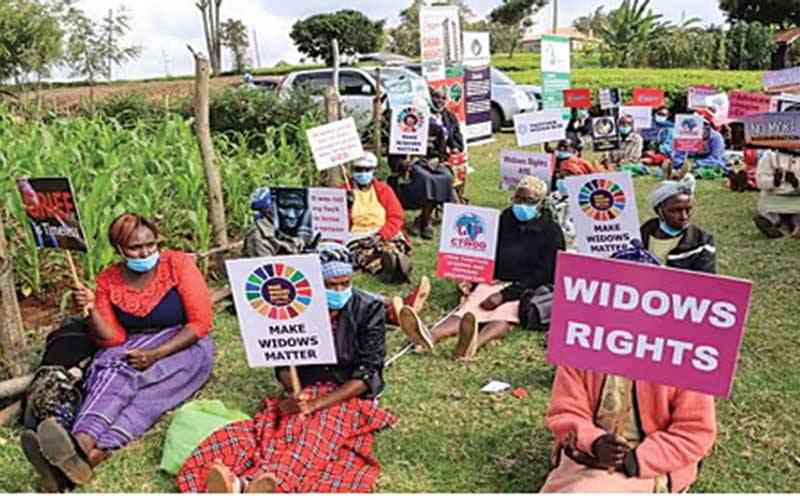
Improper handling of inheritance matters by greedy in-laws continues to haunt children, resulting in many turning destitute and becoming drug addicts, right’s groups have said.
They said the rights of children should be prioritised to eliminate injustices that they face at the hands of family members and in-laws.
Padare programmes officer, Meseli Nyoni, said there was a need to ensure that minor children are not disinherited.
“If the inheritance process is not administered well, the children especially boys end up being destitute. Some will be drug addicts especially if some wayward in-laws grab properties left by a son in-law,” he said.
“If their mother is married, some boys feel jealousy and disrespect the new father and in return will be abused forcing them to take solace in drugs and substances that will affect their health and well-being.”
Nyoni said some huge estates left for the family have not helped the dire situation either because of greedy in-laws.
Padare is a non-governmental organisation that champions men’s rights.
The organisation chairs the Zimbabwe Network of the Men EngageNetwork, a global alliance of men’s rights’ groups.
- Chamisa under fire over US$120K donation
- Mavhunga puts DeMbare into Chibuku quarterfinals
- Pension funds bet on Cabora Bassa oilfields
- Councils defy govt fire tender directive
Keep Reading
Padare has established structures in Bindura in Mashonaland Central, Harare and Mutare covering Manicaland province since 1995.
Eke Chifamba, a girls rights activist and founder of Shamwari Yemwanasikana, said inheritance challenges affected both girls and boys.
“Sexual abuse can be done to both girls and boys. It becomes extra difficult to make formal criminal reports if the suspected perpetrator is a close relative,” she said.
“Most victims will be children left by deceased parents whose estate and inheritance could have been mishandled.”
Chifamba said there was a need for a multi-stakeholder approach to help disinherited children.
“These issues can be discussed in churches, schools, workplaces and any other places where people meet to share, social networking on family fabrics,” she added.
“As Shamwari Yemwanasikana we offer counselling, safe shelter and pathways for a better future for affected children. We continue to raise awareness and amplify the voice of the affected community, especially the less fortunate.”
Under customary law, the surviving spouse receives the immovable property in which they were living and one-third of the net estate.
In instances where the deceased had more than one wife, one-third of the net estate is shared between the two wives with the two-thirds being shared equally among the children.






